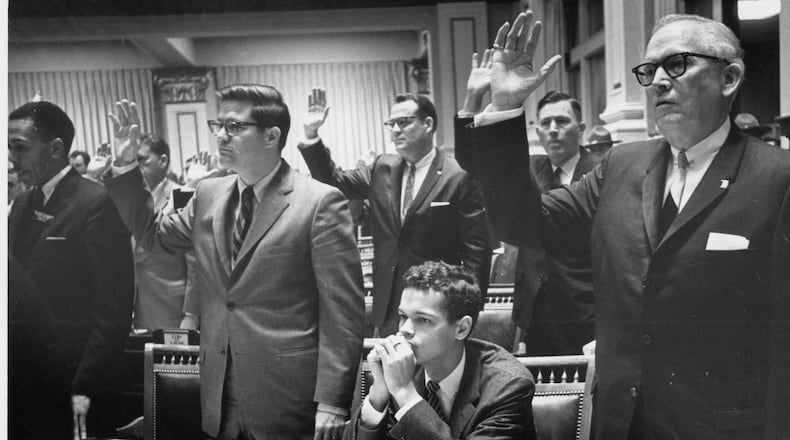The passage of the Civil Rights Act and Voting Rights Act of 1965 did more than open the way for blacks in the U.S. to vote; it prompted many to run for public office. In November of that year, Julian Bond was one of 11 blacks elected to the Georgia House of Representatives.
Although he won the election, his seat in the Georgia Legislature was denied. On Jan. 10, 1966, Georgia state representatives voted 184-12 not to seat him because he had publicly endorsed a policy of opposition to U.S. involvement in the Vietnam War. News reports of the day said many disliked the Student Nonviolent Coordinating Committee, an organization he helped establish in 1960.
The 25-year-old remained calm under the pressure and glare of the media spotlight, despite a ruling of a three-judge panel on the United States District Court for the Northern District of Georgia deciding that the Georgia House had not violated any of Bond’s constitutional rights.
A year later, the United States Supreme Court ruled 9-0 in the case of Bond v. Floyd that the Georgia House of Representatives had denied Bond his freedom of speech and was required to seat him.
With the Supreme Court on his side and his mother watching from the House gallery, Bond finally received the oath of office as a Fulton County representative on Jan. 9, 1967.
The lone protest came from Rep. James H. “Sloppy” Floyd, who called Bond a “shame and disgrace to his race and this state.” Bond also received $2,000 in back pay for the 1966 legislative session in which he was not allowed to participate.
The slim, soft-spoken young man may have gone unnoticed in the throng of newly elected legislators, some speculated, but the drama leading up to his first day in office guaranteed he’d remain in the spotlight.
From 1967 to 1975, Bond was elected to four terms as a Democratic member in the Georgia House. There he organized the Georgia Legislative Black Caucus.
Bond was also the first president of the Southern Poverty Law Center. Besides the four terms as a state rep, he also served six terms in the Georgia Senate, having served a combined 20years in both legislative chambers. From 1998 to 2010, he was chairman of the National Association for the Advancement of Colored People.
About the Author
The Latest
Featured



